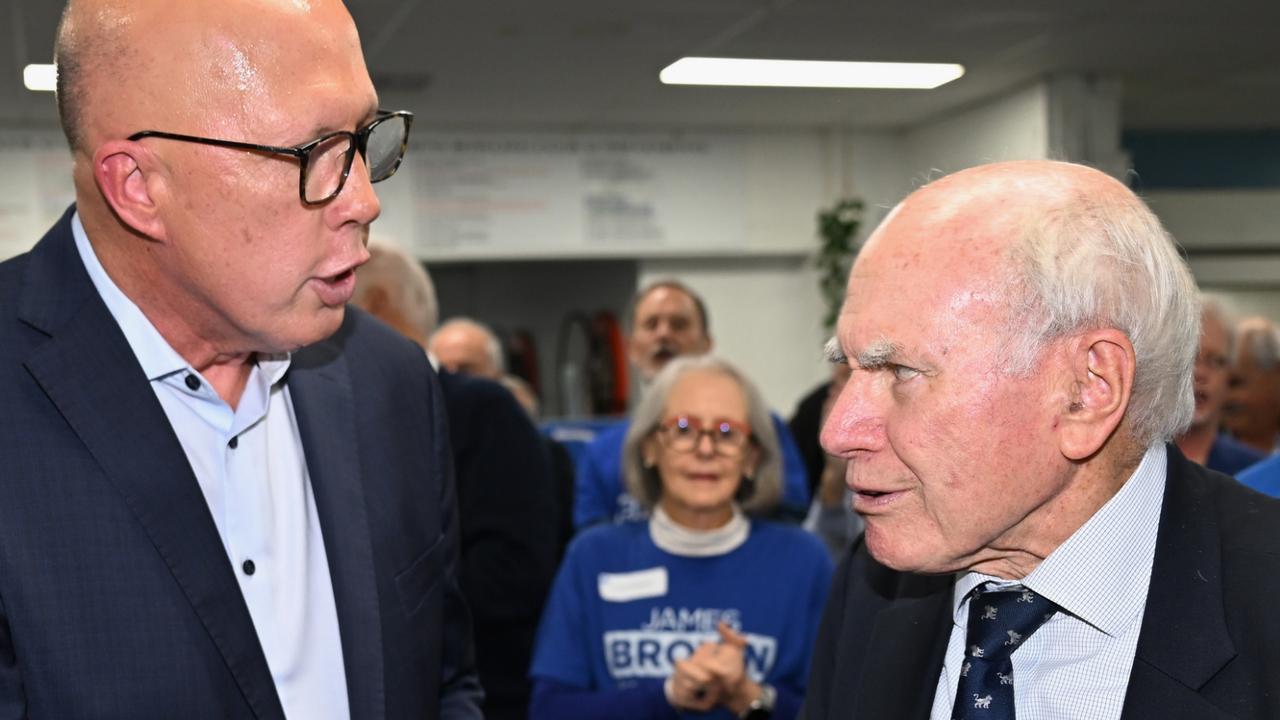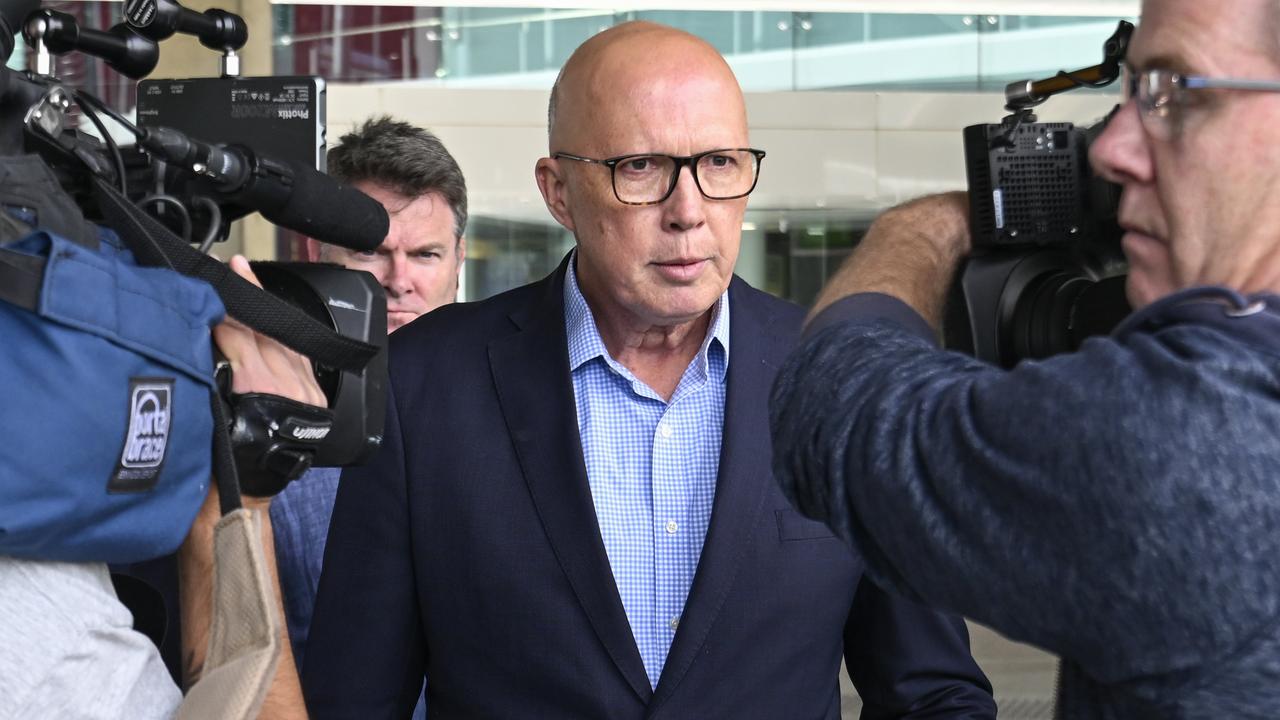Toxic Canberra needs more women – and a metaphorical bomb, writes David Penberthy
Parliament is such a toxic place for women I wouldn’t want my daughter to work there, writes David Penberthy. But more women is what it needs.
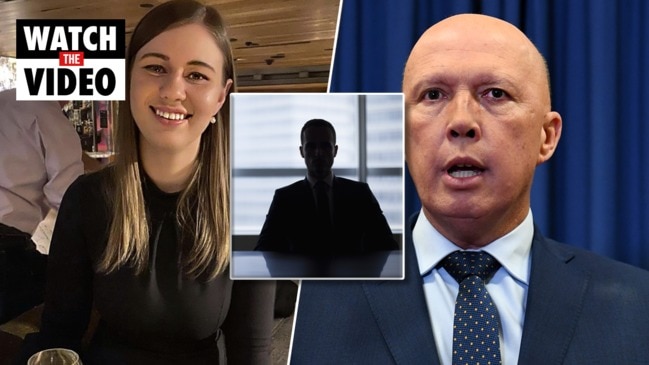
Opinion
Don't miss out on the headlines from Opinion. Followed categories will be added to My News.
Human resources departments are often the butt of jokes and I’ve been guilty myself over the years of pouring scorn on team-building exercises, interminable planning days where you feel like stabbing yourself to death with a whiteboard marker, or the proliferation of laminated passive-aggressive signs in the tea room reminded you how to behave.
The reality, though, is HR is there for one key reason – namely to ensure workers are treated in accordance with the law and that people don’t have to put up with harassment, discrimination or abuse.
If you think about how the world has changed, it is only a generation or so ago that many workplaces and companies had no HR department or officers at all.
Undeniably, the workplace was a less safe and less inviting place then, principally for women.
I can remember one workplace in the early 1990s where one staff member had chosen to decorate his wall with naked models from Penthouse magazines, in a part of the workplace which was frequented by females.
The idea of doing that in 2021 is about as inconceivable as lighting a quiet cigarette while on a kid’s birthday playdate at a McDonalds playground.
There is of course one workplace in Australia that is resistant if not impervious to what is now standard elsewhere in terms of human resources, and it’s the one that wields power over all of our lives – federal parliament.
Staff at Parliament House are employed through the Department of Finance and, while there is a HR department within that department, the staff are effectively treated as cost units rather than employees.
Beyond that, the culture of the entire building is such that everything is seen and responded to through the prism of party politics.
This is at the core of what’s been unfolding so depressingly over the past few weeks, where multiple women have come forward to tell their allegations of sexual assault.
The common problems in all these alleged cases are twofold – the lack of any effective internal grievance mechanism to address the problem, and politically-inspired confusion as to what the problem actually is.
Or to put it another way, the warped sense that a woman’s alleged sexual assault can be seen not as a purely criminal issue that must immediately be resolved by police, but also as a political issue that must be managed in terms of what it means for media coverage, the party’s stability, the reputations and careers and ambitions of people in the victim’s circle.
Politics is a brutal game. I know first-hand how unpleasant it can be on account of being married to a former politician who decided to walk away from it all because our kids were about to start primary school and she didn’t want to spend 22 weeks a year away.
Decisions like that are made easier for women – not just the decision to leave politics but the decision not to enter it in the first place – when you look at the broader context in which female staffers and female MPs are treated.
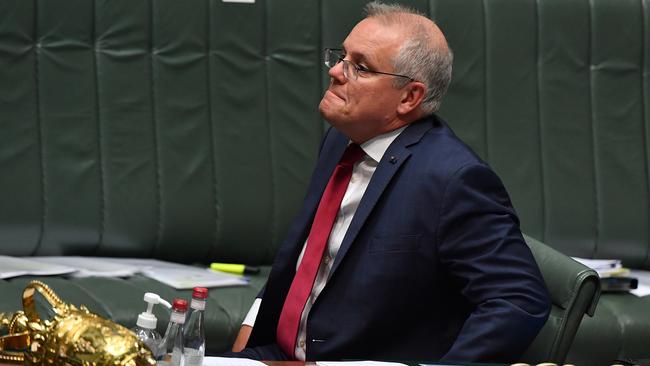
For the staff, it’s a culture where you should think twice about complaining about male misconduct if you’re serious about getting ahead.
For female MPs it is copping innuendo and sleaze about your appearance, your marital status, and sledges against your mental capacity, your capacity to show courage or lead – versus men, who apparently have some kind of chromosome-driven monopoly on those two qualities.
It also means you will have to cop abuse that is unique to your gender.
A couple of years ago I interviewed federal Liberal MP Nicolle Flint about the attention she received at the 2019 when she was trying to hold her seat of Boothby, which was targeted by Labor, GetUp and the unions as the only winnable Liberal-held seat in South Australia in that election campaign.
They threw everything but the kitchen sink at her, and in the midst of what was often a valid if robust political battle, a few things happened that were unforgivable and appalling.
Her office was daubed with sexist graffiti. One piece of graffiti said “blow and go”, another wrote the words “$60 an hour” on her forehead on an election poster. Amid all this attention she also ended up getting stalked.
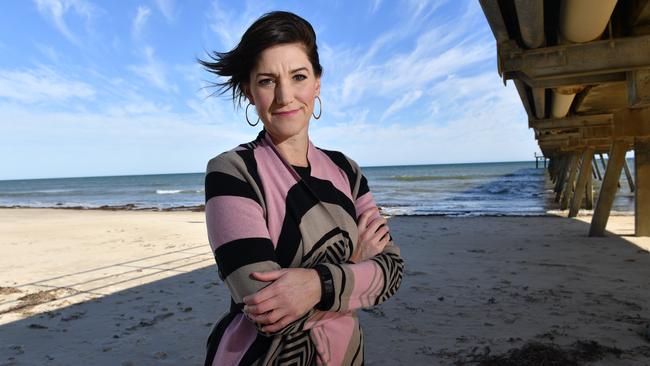
As an opinionated conservative Flint also attracted attention from sections of the media. One of whom, sacked Fairfax columnist Mike Carlton, described her on Twitter as a “Liberal shill” and wondered why she hadn’t been “strangled”.
I have been asked a few times how I would feel as a father if my daughter went into politics. As things currently stand, despite the fact that my wife did it, I would prefer my daughter did not.
Or, to put it more accurately, because my wife did it, I would prefer my daughter did not.
I have learned enough about the type of attention women attract in the toxic shithole that is Canberra to never wish it upon my own flesh and blood.
It is why the place needs to be radically overhauled as a matter of urgency.
Perversely, part of the problem in Canberra comes from the old pension scheme. My wife was elected in 2004 at the first election when the pension was abolished – and rightly so, as it was an outrageous rort.
So, while people like her who were elected after that date retire without it, there is a sizeable number of old blokes sitting around that joint who are maximising their entitlements under the old scheme, which operates as a protection order for dead wood.
The place needs a metaphorical bomb put under it. It needs more women there as it is only through the weight of numbers that the place will truly change.




